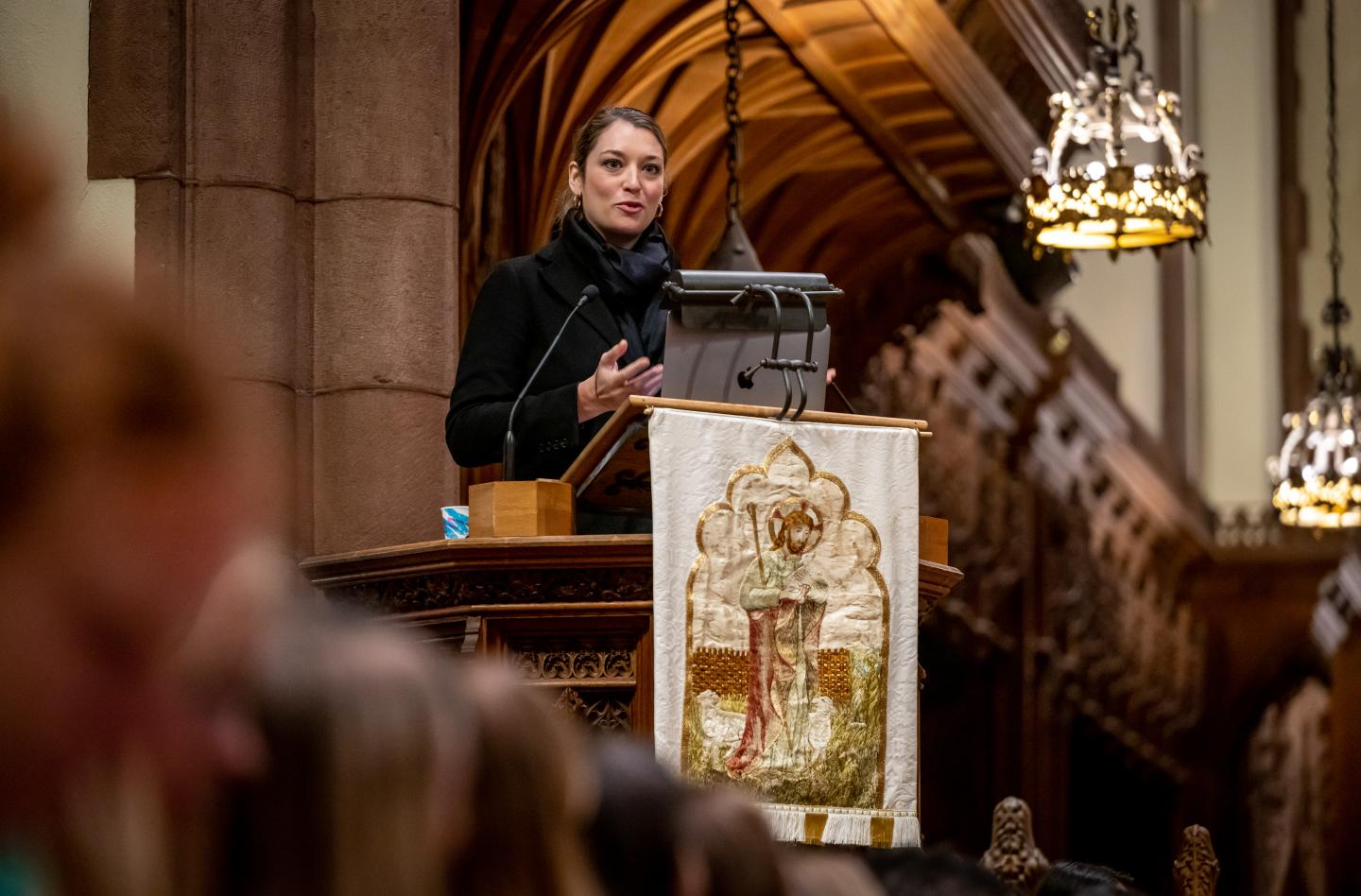

Earth Week at SPS explores passion, activism and justice
As Earth Day began at St. Paul’s School on Friday, April 22, Chapel speaker Alizé Carrère, a National Geographic Explorer, filmmaker and doctoral student researching and documenting human adaptations to environmental change, painted a picture of the United States in the 1960s. Then, unregulated industry — with its oil spills, leaded gas, polluting factories, raw sewage, toxic dumps and pesticides — led to rivers catching fire and smog so thick in Los Angeles that both visibility and health were affected. At the time, New Hampshire’s own Merrimack River was considered one of the most polluted rivers in the country.
Rachel Carson’s 1962 bestseller “Silent Spring” raised awareness and concern for the environment, and the first Earth Day in 1970 — a bipartisan, cross-cultural call for change — led to the creation of the Environmental Protection Agency, along with the National Environmental Education Act, the Occupational Safety and Health Act, the Clean Air Act and, two years later, the Clean Water Act.
Citizen action led to change, Carrère said, and SPS students, who have grown up in a climate change crisis, need to channel any sense of fear they may have about the future into optimism and use their innovation and creativity to take action themselves. Environmental health, she reiterated, is not a political issue.
During her daylong visit, Carrère had lunch with students in the Eco-Action club and spoke with a dozen Fifth Formers who will be undertaking science-focused externships as part of the SPS Applied Science and Engineering Program. She also visited environmental science and marine biology classes.
In Teacher of Chemistry and Environmental Steward Nick Babladelis’ Food, Environment and Society class, Carrère discussed her research on how to build cities in the future and floating agriculture. When one student asked what inspired her travel and research, Carrère shared that her interest began with her eleventh-grade AP environmental science class, which connected science to society and policy with an emphasis on solutions. Carrère spoke more about her work at a lecture that evening that was open to the School community and the general public.
In the week leading up to Earth Day, teachers incorporated lessons on the science, policy and ethics of climate change into their curricula. An “Eating for the Planet” program in the School’s dining hall highlighted healthy choices for humans and the planet alike, and the week’s menus featured products from local and regional vendors.
On Tuesday, April 19, Rector Kathy Giles hosted a virtual conversation among three alumnae who have found their purpose and passion in work that promotes stewardship and protection of the environment: impact investment managing director Diana Propper de Callejon ’80, legal advocate and Earthjustice president Abigail Dillen ’90, and engineer and assistant professor of Native American environment, health and community Grace Bulltail ’00.
On Thursday, April 21, the Offices of Environmental Stewardship and Diversity, Equity, Inclusion and Justice (DEIJ) Initiatives hosted the virtual event “Climate Justice: Multiracial Movement-Building for the Win” for adult members of the SPS community to explore the intersection of climate, race and justice.
Babladelis noted that the collaborative efforts of departments across the School demonstrate just how connected and important the work of climate action, justice and education are.
“I was thrilled to see students engaging in this intersectional work through the Climate Justice event cohosted with DEIJ. Students left with that spark of intellectual energy that teachers love to see,” he says. “That they recognize the need to engage … and are excited to do the work is a hopeful place to land at the end of our Earth Week.”
